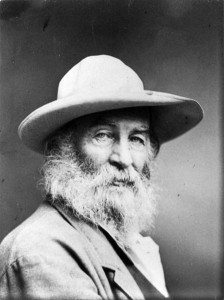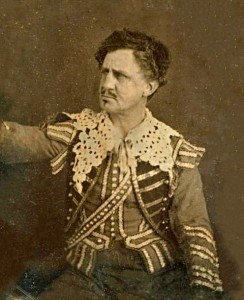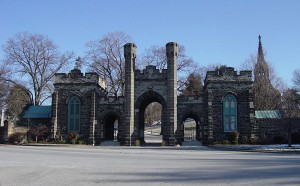
Many know of Walt Whitman as America’s first true poet and the liberator of American literature. What many might not know is that Whitman did not emerge on the literary scene out of nowhere. In fact, Whitman spent a great deal of time reporting, writing, and editing for a number of New York newspapers including the New York Aurora and the Brooklyn Daily Eagle before Leaves of Grass was published.
The young Whitman was a sponge, soaking in the life surrounding him in a loud, chaotic, rude, and spirited New York. It is no wonder that Whitman’s poetry exuded this combination of the rude and the dramatic; a great deal of Whitman’s time as a reporter was spent reviewing theater performances. The actor who had perhaps the greatest impact on Whitman was Junius Brutus Booth. Of Booth, Whitman has written that “when the elements were propitious, and he gave the audience what he was capable of throughout, you saw and heard something to be remembered for your lifetime, and to give you new standards, and the highest ones, of art.”

Ironically, Junius Brutus Booth, named after Marcus Junius Brutus, the lead assassin of Julius Caesar, would go on to father this country’s most notorious assassin, John Wilkes Booth. John Wilkes grew up at Tudor Hall, the house built by his father in 1851, 30 years after he himself had come to live in Harford County, Maryland. Junius Brutus Booth died shortly after the erection of Tudor Hall, leaving behind his sons and wife. John Wilkes quarreled often with his brother Edwin, another actor, who was a staunch supporter of the North, as opposed to John Wilkes’s Confederate leanings.
Whitman, the poet of democracy and freedom, was deeply enamored of Lincoln. He saw Lincoln as the salvation of a broken country, and upon Lincoln’s assassination, he was, like much of the country, grief-stricken.Whitman would go on to author a number of memorial poems such as “O Captain! My Captain!” and “When Lilacs Last in the Dooryard Bloom’d.” In a memorial essay Whitman wrote, “Lincoln was fond of the theatre. I have myself seen him there several times. I remember thinking how funny it was that He, in some respects, the leading actor in the stormiest drama known to real history’s stage, through centuries, should sit there and be so completely interested and absorb’d in those imaginary doings.” (p. 167, ebook)

John Wilkes Booth is buried here in Baltimore in a family plot at the Greenmount Cemetery. Explore the Archives’ Edwin Booth Collection to find a photograph of J.W. Booth as well as a description of the cemetery.

Awesome post, Chris, thank you. I did not know about the multiple Booth connections and they are absolutely fascinating.